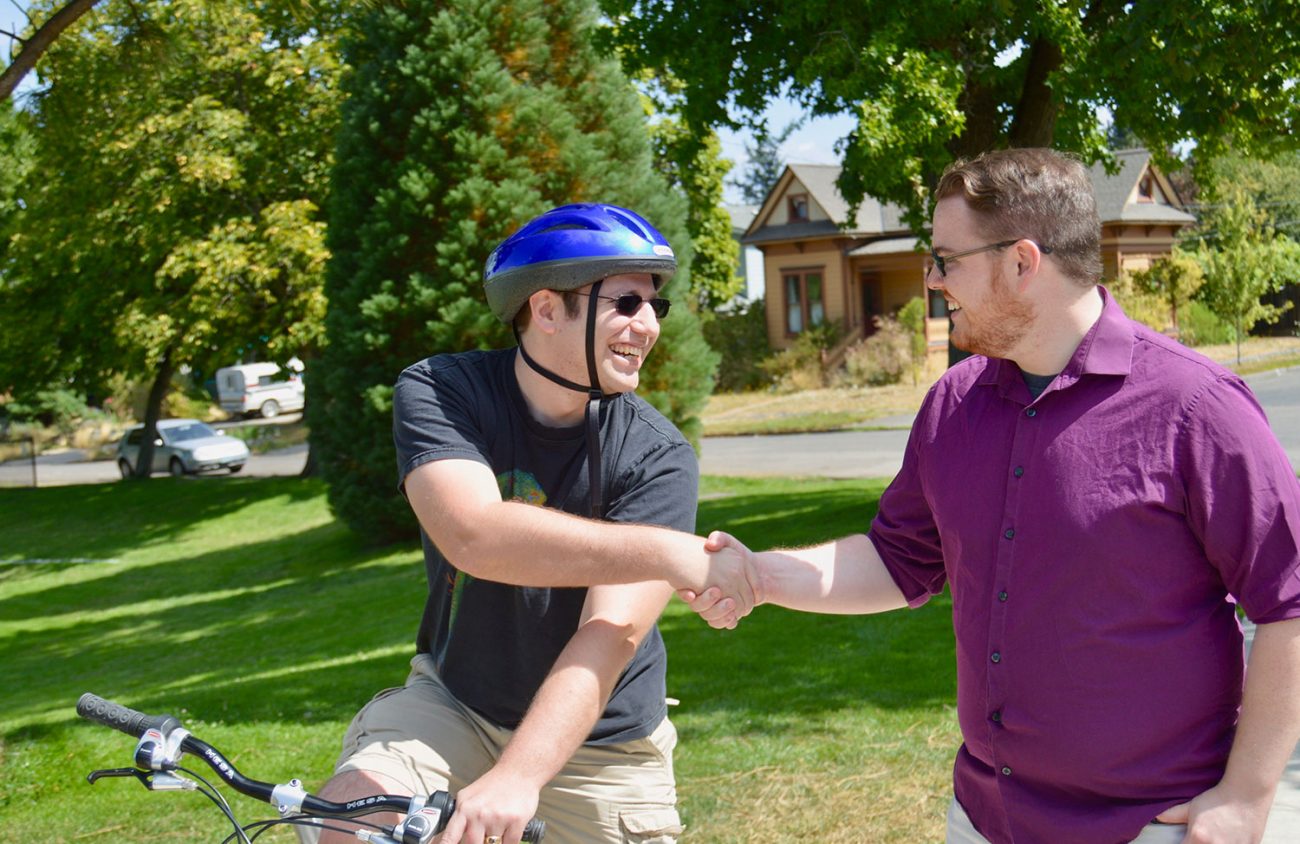A few hours after announcing his campaign for Eugene City Council, Tim Morris, 28, spoke with Eugene Weekly about his stance on some recent council decisions and issues the city government faces. If elected, he’d be one of the youngest councilors, and one of the few LGBTQ representatives on the council in recent memory.
Eugene’s City Council has been trying to find solutions for the city’s housing crisis. In June, the council decided to allow property owners to enforce trespassing and illegal camping on the space between the curb and sidewalk.
Morris says councilors are enacting ordinances that punish illegal camping rather than offering a place for the homeless to go to.
“We need some empathy in our City Council,” he says. “We’re all in this together.”
What the council also needs is more perspective from renters, he says.
According to property records, the current makeup of the Eugene City Council only has one renter: Mike Clark.
An advocate for renters is important, Morris says, since renters face vulnerabilities like lack of housing affordability, the whims of a landlord’s decisions and unreasonable rules set in place.
Not enough housing units are being built in the area, he says. To house the annual incoming residents to the Eugene area, 1,600 units would have to be built each year. In 2018, only 900 homes were built, Morris says, recalling a recent study he read.
“We’re just not building enough for the incoming people, let alone the people here,” he adds.
Earlier this year, the City Council passed a public safety payroll tax. He says he understands that if the police and other public safety agencies come forward with resource problems, councilors should listen. But as a low-income person (he works at Emergence as an administrative specialist), the tax will impact his life.
The council’s decision to pass the payroll tax through council vote rather than to send the tax to the ballot caused some controversy. When deciding whether to enact a payroll tax, Morris says, it’s important to have public support.
He was at the council’s May 28 forum on the payroll tax in the Eugene Public Library, and he says he remembers hearing 30 to 40 people who were angry about the tax. In cases like that, he says, a payroll tax should either be re-written in a way that is easily digested by the general public or it should be voted on.
One of Morris’ policy passions is climate action. He says he’s aware the city of Eugene doesn’t have the powers of the state or federal government, but it’s important for the city to be proactive in tackling climate change.
Morris doesn’t name any local heavy polluters, but he says kicking any out of the city limits would be irresponsible. Instead, the local government and polluters should have a “stern conversation” about tackling local greenhouse emissions.
The city’s most recent climate plan, titled Climate Action Plan 2.0, proposes ways to move toward carbon neutrality, reduced fossil fuel use and adaptation to climate change.
As councilor, he would want to see improved roads in the city and would help make other transit options like ride share or mass transit more accessible.
“I think all change is local change,” he says. “In order to really address our climate crisis, we have to hold big polluters accountable — and ourselves.”
He adds that, after talking with an EWEB commissioner, city councilors aren’t conducting enough active collaboration with the agency, and he’d like to improve that relationship.
Morris does see some positive local action taking on climate change like LTD’s EmGo, which, if successful, could reshape downtown, he says.
“I think there are some solutions that are coming up that people are making here in the community, but the work is never done,” he adds.
Morris, a Democrat, serves on the Lane County Budget Committee, Lane Community College Budget Committee and is the board president of the Eugene Springfield Tenant Association.
Morris’ campaign finance group, Friends of Timothy Morris, has been active since March 22, so he’s been planning a political office campaign for a while.
Contributions to his campaign account come from regional Democratic Party officials, such as $150 from Chris Wig’s account (a Willamalane board director and president of the Democratic Party of Lane County), $125 from Brian Josephson and $300 from Nathan Soltz (vice-chair of Jackson County Democrats).
The Democratic Party of Lane County hasn’t endorsed either Semple or Morris yet but, in the 2016 election, the local chapter threw its weight behind Semple’s opponent Joshua Skov.
